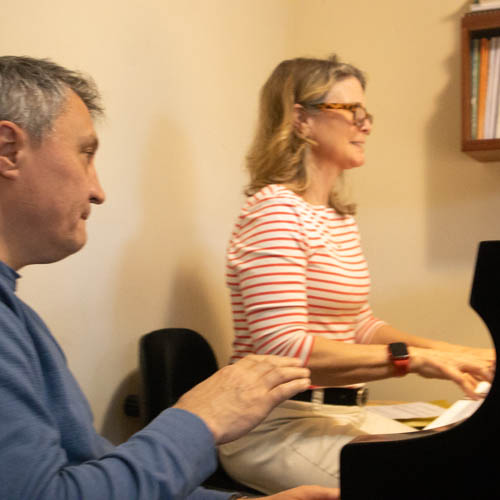I have been very lucky to meet some great people throughout my professional life. Some of them do the same job as mine, or aspire to it. We sometimes talk shop which is always fun. They tell me about their students, I tell them about mine. We have a simple rule: no names, and, if possible, no gender. The situations described also have to be fairly vague but understandable enough to indicate clearly what the subject of the conversation is. We do that to preserve the pupil’s privacy. If something is said that’s a bit more specific, it has to be a compliment like: “I’ve got this 9 years old young lady who can crash a cymbal like nobody else” or, “This young man plays the piano fluidly, with a touch and a musicality as clear as a stream”. But still, no names.
What is difficult to talk about with my colleagues is the approach. That’s a subject I still haven’t found the words for. This blog isn’t going to be an attempt at describing such intricate content either.
When I meet a student for the first time, my whole job is to be able to communicate with them as effectively as possible. That’s not an easy task. You have some people who are shy and will eventually come out of their shell, and you have some who will stay silent and guarded for years. Some are exuberant on the instrument but very quiet in conversation. Some are adults with a long story behind them, some are spring chickens with a brand new soul. They come with the load of the week or the day on their shoulders.
They can be mad about something, or frustrated. These are difficult feelings to deal with. I feel for them. Yes, I do. Did I mention that in order to communicate with them, I need to walk a mile in their shoes? There, then, that’s done, I said it. So, as they tell me about their problems, I am with them. They share their pain, their sadness, their lives! I can’t help but feel sad or angry. It’s important that they know they’re not alone. It’s also important they know I am just a messenger, that the real mode of transportation from a negative mode to a positive one is music. That’s one of the reason I care for them. But, actually, I don’t need to explain why I care or what I care about. The relationship between humans is very complicated and, if you have a modicum of empathy, you’ll know what I mean.
When I approach a lesson I take whatever the student is ready to serve. I am not solely in charge of what will happen during our time together, it is important that they have their say-so, their place in the space and time allowed. So, I guess, the important part of the approach is to not be indifferent. If I had to resume my approach to any lesson it would have to be pretty simple then: let’s talk. The rest takes care of itself.

